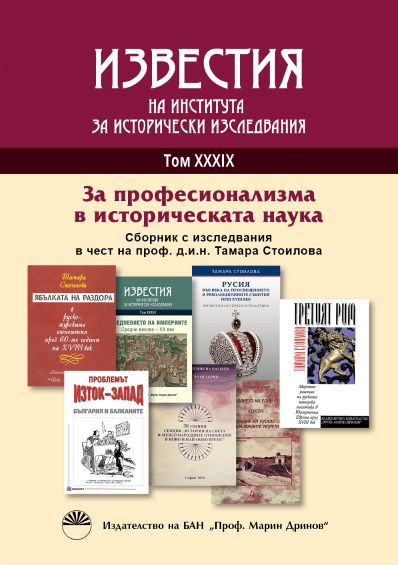Шведската историческа школа – дългият път от изживяването на националния романтизъм към интегрирането в европейската научна мисъл
The Swedish Historical School – the Long Road from Passing through the National Romanticism to the Integration into European Scientific Thought
Author(s): Katina YonevaSubject(s): History, Cultural history, History of ideas, Modern Age, 6th to 12th Centuries, 13th to 14th Centuries, 15th Century, 16th Century, 17th Century, 18th Century, 19th Century
Published by: Институт за исторически изследвания - Българска академия на науките
Keywords: Swedish Historical School; Viking sagas; the Age of Enlightenment; patriotic theory; Scandinavia
Summary/Abstract: Considering that the historical periodization of Scandinavia is not yet conventionally set, the earliest human occupation of Northern Europe is also uncertain and has been the subject of intense debate for a long time. The Norse were the first to reach the region; however, the Viking sagas were recognized as poorly documentary sources beyond their role in providing information about their cultural and societal models. The number of Scandinavian written documents is rather limited especially before the fourteenth century. After the twelfth century, a substantial number of works appeared mainly as a result of European influence due to the process of Christianization and the new dynasty system. Nevertheless, the blooming of such historical writings in Sweden began in the first half of the eighteenth century. Тhey presented the product of the efforts of remarkably distinguished array of scientists, who established fruitful scientific relationships with the academies of the prominent European countries. Olof von Dalin popularized the ideas of the Enlightenment, which he expressed in his easily readable works, rising to popularity among the modern Swedish society. Even though historical texts revealed a lot of interesting information about the major events of the past, these writings were often distorted by the personal opinions and perspectives of the authors. Such books (like Rudbeck’s “Atlantica”) boosted the patriotic theory that Sweden is indeed the cradle of civilization. Correspondingly, this study looks not only at the classic historical works of undoubted scholarship, but also at the contemporary criticism towards different scientific dogmas of previous times.
Journal: Известия на Института за исторически изследвания
- Issue Year: 39/2025
- Issue No: 1
- Page Range: 74-105
- Page Count: 32
- Language: Bulgarian
- Content File-PDF

